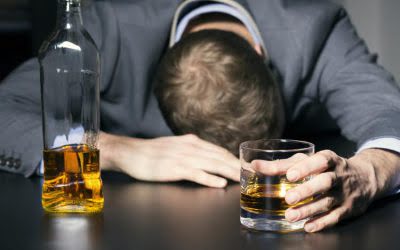Why Is Alcohol Addictive Physical & Psychological Reasons
Why Is Alcohol Addictive Physical & Psychological Reasons
Content
The United States’ approach to substance abuse has shifted over the last decade, and is continuing to change. The President’s Advisory Commission on Narcotics and Drug Abuse of 1963 addressed the need for a medical solution to drug abuse. It is unclear whether laws against illegal drug use do anything to stem usage and dependency. In jurisdictions where addictive drugs are illegal, they are generally supplied by drug dealers, who are often involved with organized crime.
But they may also become alcoholics because of the environment in which they have been raised or because of their family or community’s attitude towards heavy drinking. Mental health disorders, stress, and trauma can also contribute to alcohol and drug abuse. Your susceptibility to alcoholism is typically determined by a combination of genetic, mental health and environmental factors. Because only 3 of the 7 DSM-IV criteria for alcohol dependence are required, not all patients meet the same criteria and therefore not all have the same symptoms and problems related to drinking. Not everyone with alcohol dependence, therefore, experiences physiological dependence. Alcohol dependence is differentiated from alcohol abuse by the presence of symptoms such as tolerance and withdrawal.
Our Treatment Centres
Although this can refer to dependence on medications that control health conditions, it can also be a symptom of addiction, which is different from physical dependence. There is indeed a lot of evidence that many individuals, who abuse or become dependent to any substance be it alcohol or illicit drugs, have often been exposed to previous trauma during their childhood or thereafter. Alcohol is addictive and alcoholism is a debilitating disease, but there are treatment physiological dependence on alcohol options and support groups like Alcoholics Anonymous that can help you overcome your alcohol dependence. This is not a debate, discussion or theory, it is a fact and it is estimated that approximately 3 million people a year die from alcohol use worldwide. Drinking alcohol occasionally in moderation will not have any long-term negative side effects on your brain chemistry as dopamine levels and endorphins are only elevated for a short amount of time.
Opiate replacement therapy has been a medical standard of treatment for opioid addiction for many years. Help from your health care provider, family, friends, support groups or an organized treatment program can help you overcome your drug addiction and stay drug-free. When taking them chronically or over long periods of time, however, physical dependence may develop. This dependence may lead to a difficult withdrawal if the person chooses to stop taking the drugs.
SUD
This included people who engaged in excessive drinking and binge drinking. However, the study did find that people who engaged in binge drinking more often were also more likely to be alcohol dependent. The contemporary definition of alcohol dependence is still based upon early research. For some folks dealing with both a physical and psychological dependence, the psychological side of things sometimes resolves on its own once the physical dependence is treated. You can also experience both physical and psychological withdrawal symptoms. Psychological dependence is a term that describes the emotional or mental components of substance use disorder, such as strong cravings for the substance or behavior and difficulty thinking about anything else.

These drugs can produce a “high” similar to marijuana and have become a popular but dangerous alternative. Signs and symptoms of drug use or intoxication may vary, depending on the type of https://ecosoberhouse.com/ drug. Benzodiazepines are a group of drugs called nervous system depressants. The presence of an addiction of some kind has long been held as a main secondary symptom of codependency.
International Patients
When abruptly stopping a substance, a person may experience adverse symptoms of withdrawal, such as confusion, hallucinations, and seizures. Although it is much rarer, some people may experience physical dependence, without meeting the criteria for addiction, to certain illicit drugs. Although doctors do not generally consider antidepressants to be addictive, they note that some individuals may develop physical dependence on them.
They can offer advice on how to approach your treatment and assist you with the process of detoxing, withdrawing, and recovering from alcohol use disorder. Everyone’s experience with alcohol is different, but effective treatments are available, whether your condition is mild, moderate, or severe. Alcohol dependence and alcohol abuse were two designations previously recognized in the DSM-IV. Today, they have been combined and are known as alcohol use disorder. While no longer separate diagnoses, it can be helpful to understand the differences between the two. “Dependence” refers to being unable to stop drinking without experiencing withdrawal symptoms while “abuse” refers to continuing to consume alcohol despite adverse consequences.
Substances Associated with Psychological and Physiological Dependence
People often continue drinking to alleviate these unpleasant symptoms. While the two are no longer differentiated in the DSM, it can still be helpful to understand their original definitions. This article discusses alcohol dependence, alcohol abuse, and the key differences between them. In most cases, though, working with a therapist is the best course for addressing psychological dependence, whether it occurs on its own or alongside physical dependence. Some estimates suggest approximately 90 percent of people recovering from opioid addiction and 75 percent of people recovering from alcohol addiction or other substance addictions will have symptoms of PAWS.

